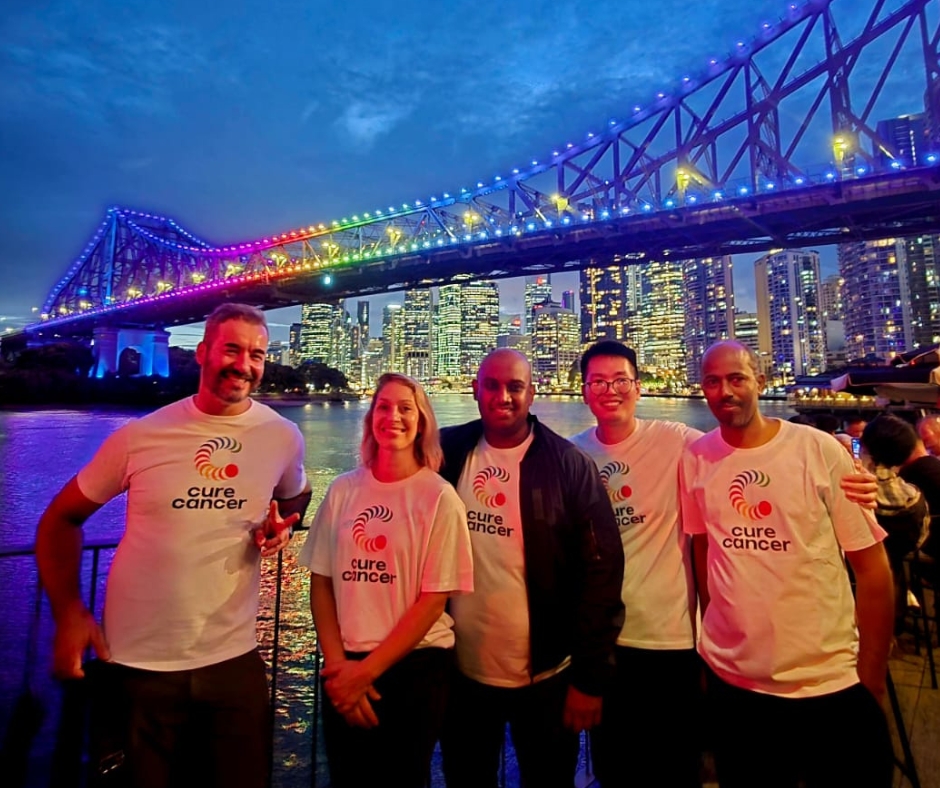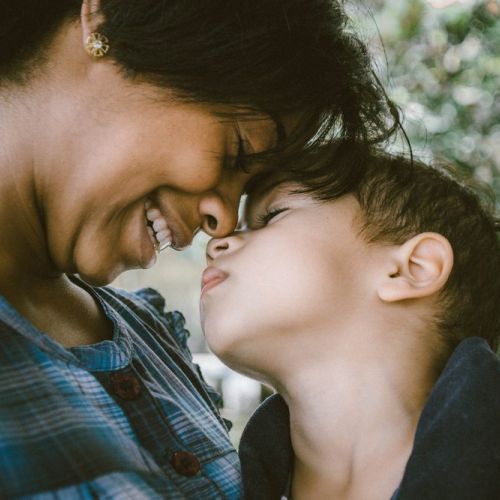
Everyone copes with cancer differently. Often, one of the first things people do when affected by cancer is to search online for advice on how to cope. That’s where George comes in.
George is just a regular Aussie guy who loves seeing his friends, sports and going on adventures. But in 2017, George was battling stage 4 bowel cancer that had metastasised to his liver at only 48 years old. The odds were stacked against him, but thankfully his cancer treatment worked incredibly well and he’s been cancer-free for the last 3 years.
Of course, George has had some very low days over the past 3 years but he’s also managed to accomplish some great things like the Half Ironman Triathlon! He wanted to share some words of comfort and advice that helped him get through his cancer journey…
CANCER AFFECTS MENTAL HEALTH
“I found that talking, sharing, crying, laughing and hugging friends and family helped me tremendously both positively, but especially mentally and I did a lot of work to support my mental health during my treatment.
“My oncologist sent me to a psychologist who basically said the same thing. Understand that cancer even happens to the best of people through no fault of their own, so don’t be afraid to absorb all of the love, care, help, support that you can, because you will need it, and you would do the same thing for your loved ones.”
TRUST IN TREATMENTS
“I can’t speak highly enough of the incredible treatments that we have available and are continuing to improve through the fantastic research into cancer diagnosis and treatment that is supported by Cure Cancer. Knowing that there is so much work going into the development of treatment does make a difference in knowing that there is hope that something will work.”
USE AS MANY AVAILABLE RESOURCES AS YOU CAN
“I found that Cancer Council, along with other charities to have fantastic resources such as:
-
Excellent booklets to explain all kinds of cancers, treatments and other issues.
-
Setting you up with other info and networks. I even got a cancer buddy who had had the same treatment and helped me through.”
IT’S OKAY TO BE NOT OKAY
“Don’t underestimate how this will hurt, impact, upset and challenge you in so many ways both physically and mentally. Lots of people forget about their partners and closest supporters, so make sure that you are looking after them as they are your best support.”
DON’T BE AFRAID TO TALK ABOUT IT
“I found it really important that my wife asked me every day how I was feeling as I was going through my 4 operations and 6 months of chemotherapy. Some days were good and some bad, but it helped me to verbalise it and I would also write it down so I could track my mood, weight, progress, feelings, nausea, etc. it also helped so she knew exactly how I was feeling and could help where she could.”
EXERCISE CAN REALLY HELP
“There is lots of evidence now about the importance of exercise during treatment, especially through chemotherapy. In fact, when I was being treated, Dr. Peter Mac was doing clinical trials on administering chemo whilst people were on exercise bikes. Exercise like walking or exercise bike was not always easy when you are fatigued or nauseous, but I always forced even just 5-20 minutes at whatever bearable level and nearly always felt a bit better, in body and mind. Of course, everybody is different.”
IT’S EASY TO SAY BUT STAY POSITIVE
“I was also amazed at the wide range of different treatments available, so that if the first one doesn’t work well, the doctors have a range of the next things to try, as everyone and every cancer responds differently, so keep positive and strong. This wide range of treatments can only come from a wide range of cancer research.”
As we mentioned earlier, George is one of our superstar fundraisers having just completed the Half Ironman Triathlon in just 6 hours. We’d just like to thank George for his beautiful words and his support of Cure Cancer. He’s truly an inspiration to us all.










